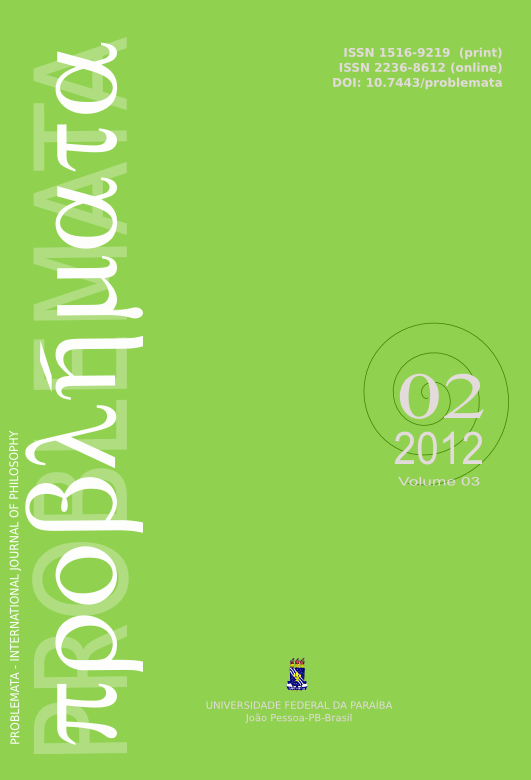STRUCTURAL TRANSFORMATION OF THE PUBLIC SPHERE: FIFTY YEARS OF AN ACTUAL AND MULTIFACETED TEXT<a href="http://dx.doi.org/10.7443/problemata.v3i2.14956"><i> <b>[doi: 10.7443/problemata.v3i2.14956]</b></i></a>
DOI:
https://doi.org/10.7443/problemata.v3i2.14956Abstract
Past fifty years of the work “Structural change in the public sphere” by Habermas, his work still arouses interest and continues current. This work presents in its context a brief history of the formation of Brazilian public sphere, showing some of its contrasts and challenges with emphasis on ethical and discursive means for solving conflicts. Emphasizes mediation as an instrument of recovery of citizenship for the formation of the public sphere. Finally, it discusses how the public sphere is realized under the Brazilian university. The public University, a space for human formation by excellence, has been going through major changes in recent times. Apart from realizing the challenge to attend a increasingly complex society, it has undergone profound structural changes with the implementation of expansion projects designed without proper debate discursive, like the REUNI. Urge that society critically and actively monitor this process to ensure the maintenance of quality of education and its relevance as a public space and democratic.
Downloads
Downloads
Published
Issue
Section
License
Authors who publish with this journal agree to the following terms:
- Authors retain copyright and grant the journal right of first publication with the work simultaneously licensed under a Creative Commons Attribution License that allows others to share the work with an acknowledgement of the work's authorship and initial publication in this journal.
- Authors are able to enter into separate, additional contractual arrangements for the non-exclusive distribution of the journal's published version of the work (e.g., post it to an institutional repository or publish it in a book), with an acknowledgement of its initial publication in this journal.
-
- Authors are permitted and encouraged to post their work online (e.g., in institutional repositories or on their website) prior to and during the submission process, as it can lead to productive exchanges, as well as earlier and greater citation of published work (See The Effect of Open Access).





